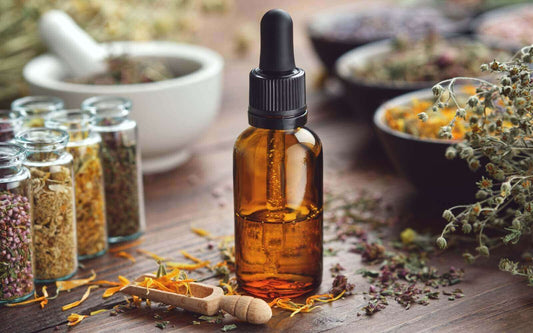
Natural Insect Deterrents
Juliette van der MeerAs we head into the warmer season, bugs, insects and mosquitoes are emerging from their winter hibernation. My home seems to have two seasons, winter and mosquitoes (monster size ones at that) which has me reaching into my essential oils cupboard for solutions.
Generally, any strong scented essential oils will be effective at deterring insects as they dislike the smell. Surprisingly and happily, insects are averse to some rather nice smelling oils. For instance spiders hate peppermint, while ticks won't go near geranium. Additionally, there are a couple of other natural repellents that you could use. We love herbal infusions, which are cost effective and work well. Also try selected indigenous oils - a uniquely South African solution for our insect problems.
Bases For Insect Repellent Sprays Or Pet Rinses
The following make good 'bases' for which to add essential oils to, but also have their own insect repellent properties.
- Witch hazel - a good natural dilutant and insect repellent.
- Peppermint leaf infusion - a strong insect repellent. The tea is also useful for headaches and indigestion, and the infusion can be added to your DIY shampoo - a handy herb to have!
- Neem leaf infusion - neem is well known for its pesticide and insecticide properties. The neem tree is a natural insecticide for your garden.
- Buchu leaf infusion - an indigenous herb that is useful for repelling insects
- African wormwood infusion or artemisia infusion - these wormwood varieties are great for deterring insects, ticks and fleas on pets and can be used as a base for an insect repellent spray. The living plant is also a natural insect deterrent.
To make an infusion, steep a quarter cup loosely packed leaves in 500ml boiling water (can use less if you want). Soak overnight then strain.
Specialty Oils
- Neem oil - neem oil is a potent insecticide and repellent. Beware of the very strong smell!
- Tagetes (a.k.a: Khaki Bos) - for insects, ticks and fleas.
- Wormwood oil - a great insect repellent and useful in pet shampoos for tick and flea prevention.
Well-known Essential Oils For Insects
- Citronella
- Eucalyptus
- Lavender
- Lemongrass
- Peppermint
- Geranium
- Clove bud
- Cinnamon
- Cedarwood
- Garlic
- Tea tree
You can use any combination of the above essential oils in your insect repellent.
If you have animals and want some ideas for anti-tick and flea shampoos and rinses, have a look at The Natural Pet P2 blog.

























